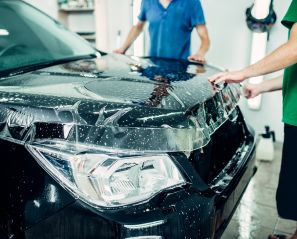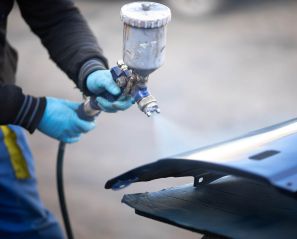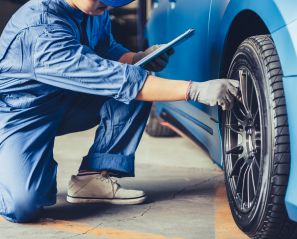Car Rust Treatment And Touch Up Paint

Car rust is a common and destructive problem that many car owners face. It not only affects the appearance of your car but can also lead to serious structural damage and reduce the resale value. Fortunately, there are several ways to treat and prevent rust damage from harming your car. In this article, we will discuss how to identify, treat, and prevent rust on your car, focusing on the importance of car rust treatment.
Identifying Rust on Your Car
The first step in treating rust on your car is to identify it. Rust appears as a reddish-brown discoloration on metal surfaces. It can start as small bubbles on the paint and gradually grow into large patches that eat away at the metal. Rust can occur on any metal surface of the car, including the body, undercarriage, wheels, and brakes.
Car Rust Treatment Methods
There are several ways to treat car rust, depending on the severity of the damage. Here are some effective car rust treatment methods:
-
Sanding: Sanding is an effective way to remove surface rust from your car. Use sandpaper or a sanding wheel to sand away the rust until you reach bare metal. Then, apply a rust converter to prevent further rust formation.
-
Chemical Rust Remover: Chemical rust removers are available in the market that can help remove rust from your car. These products work by dissolving rust and converting it into a black oxide that can be wiped away.
-
Rust Converter: Rust converters are a popular solution for treating rust on cars. They work by chemically converting rust into a black protective coating that prevents further rust formation. Rust converters can be sprayed or brushed onto the affected areas and left to dry.
-
Bondo: Bondo is a body filler that can be used to repair small rust holes and dents in the car body. After cleaning the rusted area, apply Bondo and sand it down to a smooth finish. Then, paint over the area to prevent further rust formation.
-
Professional Rust Repair: If the rust damage is severe or extensive, it is best to seek professional help. Professional rust repair shops can repair or replace rusted panels and restore your car's appearance and structural integrity.
Importance of Car Rust Treatment
Treating rust on your car is crucial to maintaining its appearance and value. Rust can spread quickly and cause severe damage to your car's body and internal components. Car rust treatment can prevent the following problems:
-
Safety Hazards: Rust damage can weaken the structural integrity of your car, leading to safety hazards. A rusted frame, for instance, can cause the car to collapse in the event of an accident.
-
Poor Appearance: Rust damage can significantly reduce the resale value of your car. Rusty body panels and components are unsightly and give the impression that the car is poorly maintained.
-
Corrosion: Rust can spread and corrode other components of your car, such as brake lines, fuel tanks, and exhaust systems. This can lead to costly repairs and replacements.
Preventing Rust on Your Car
Preventing rust from forming on your car is key to maintaining its appearance and value. Here are some effective ways to prevent rust:
-
Keep Your Car Clean: Regularly washing and waxing your car can help prevent rust from forming. Dirt and grime can hold moisture against the metal surface, which can lead to rust formation.
-
Protect Your Car's Paint: Applying a protective coating to your car's paint can help prevent rust from forming. Waxing your car regularly can provide a layer of protection against moisture and salt. Touch up paint can also be used to fill in small chips or scratches in the paint, preventing moisture from penetrating the metal underneath.
-
Park Your Car in a Garage: Parking your car in a garage or covered area can help protect it from the elements. Exposure to rain, snow, and humidity can accelerate rust formation.
-
Remove Debris from Underneath Your Car: Debris, such as leaves, dirt, and rocks, can accumulate underneath your car and hold moisture against the metal surface, leading to rust formation. Regularly cleaning out the debris from underneath your car can help prevent rust.
-
Treat Small Rust Spots Immediately: If you notice small rust spots on your car, treat them immediately to prevent them from growing into larger patches. Sanding and applying rust converter can help prevent further rust formation. Touch up paint can also be used to cover the area and prevent moisture from













